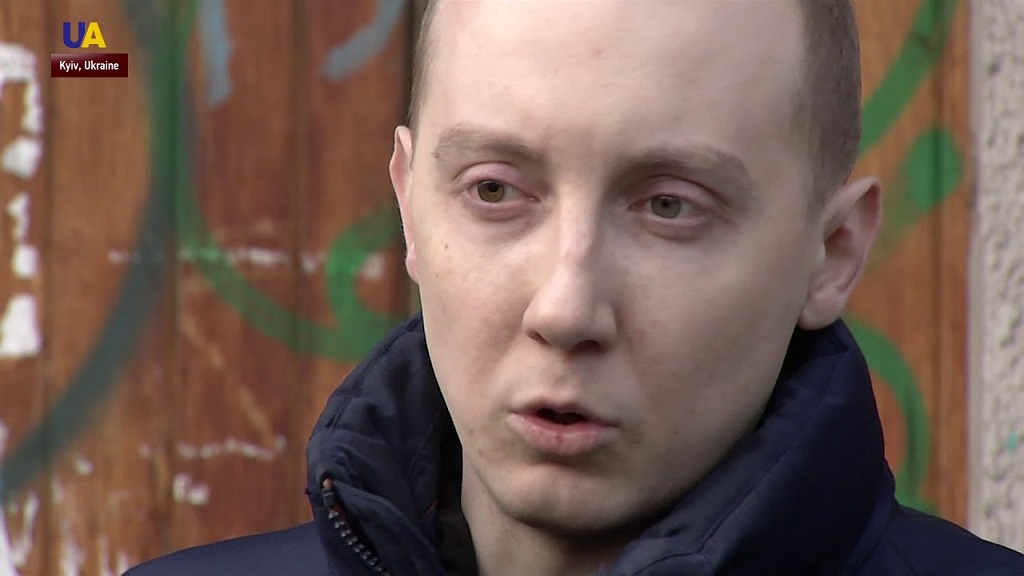Marco Levytsky, Editorial Writer.
As reported elsewhere in this issue, on October 13 the Ukrainian Canadian Congress, along with the Embassy of Ukraine in Canada and the Embassy of Canada to Ukraine presented a webinar on a new book by journalist Stanislav Aseyev about his harrowing experience in a secret Russian torture chamber known as “Izoliatsia”, or “Isolation”, housed in a former factory in the occupied Donbas.
A native of Donetsk, Aseyev was a journalist working for Radio Free Europe. He was captured and imprisoned by the Russian occupation forces in Donetsk in 2017. Until his capture, his reporting – written under a pseudonym – was an important source of information about Russian-occupied Donetsk.
Spending almost 1,000 days imprisoned, Aseyev was routinely and brutally tortured by his captors. He was released in December 2019 as part of a prisoner exchange. The Torture Camp on Paradise Street is a memoir of his imprisonment in that secret detention centre.
The English translation of this book has been completed through the efforts of the Embassy of Canada to Ukraine and will soon be available for distribution. As Larisa Galadza, Canada’s Ambassador to Ukraine says, the book needed to be translated “because it’s about the horrors that man will do to man, what people will do to each other… When you read Stanislav’s book, you get yet another window into what Russian aggression looks like. What it looks like on the human spirit and the length that they will go to crush the human spirit.”
This was not the first time the “Izoliatsia” has been brought to world attention. There was a lengthy section on it in the Report on the Human Rights Situation in Ukraine: 16 November 2019 to 15 February 2020, published by the Office of the United Nations High Commissioner for Human Rights (OHCHR) on March 12, 2020.
“In most of the documented cases, interrogators immediately threatened detainees with death, physical violence, or rape, or that their relatives would be raped if they refuse to confess or otherwise cooperate with the ‘investigation’. For example, perpetrators threatened: ‘I gave you a chance to confess so you can stay healthy. If you don’t confess now, you will end up saying everything anyway, but you will also lose your health’; ‘your daughter will be raped right in front of you’; ‘we will gouge out your wife’s eyes’; and ‘we will rape your wife’. Such threats were often accompanied by blows to the body or slaps to the face, or with other actions meant to terrify, such as putting a gun to a detainee’s head or pointing it at his foot and threatening to shoot, ‘just because we can and no one will do anything about this’ or pressing a knife to detainee’s neck threatening to cut his throat,’’ reads the report.
In another section:
“Use of electric shocks was one of the most common methods of torture. Electric shocks sourced from military field telephone apparatuses (TA), or stun guns were administered to detainees’ legs, feet, arms, necks, mouths, ears and genitals. In ‘Izoliatsia’, a separate room with a table and relevant equipment was used to administer electric shocks. For example, one detainee was tied to the table, handcuffed and hooded. Perpetrators attached one electrode to his genitalia and inserted a metal tube with a second electrode into his anus. He was subjected to painful electric shocks for several minutes, during which he lost consciousness several times. When he screamed, they put a cloth into his mouth. Another detainee told OHCHR that he was put on the table, hooded and with his arms and legs tied. Perpetrators attached electric wires to his feet and poured water on them. Some detainees held in ‘Izoliatsia’ could not prevent themselves from urinating and defecating during electrocution.”
It should be noted that Russia is a signatory to both the United Nations Convention against Torture (UNCAT) and the European Convention for the Prevention of Torture and Inhuman or Degrading Treatment or Punishment, both of which expressly forbid the practice. But then, Russia is also noted for violating the treaties it signs. Significantly, however, Russia is not a signatory of the Optional Protocol to the Convention against Torture and other Cruel, Inhuman or Degrading Treatment or Punishment (OPCAT), which provides for the establishment of “a system of regular visits undertaken by independent international and national bodies to places where people are deprived of their liberty, in order to prevent torture and other cruel, inhuman or degrading treatment or punishment,” to be overseen by a Subcommittee on Prevention of Torture and Other Cruel, Inhuman or Degrading Treatment or Punishment. So, while Moscow may pay lip service to the anti-torture conventions, there is no mechanism in place to ensure its adherence. (Ukraine incidentally is a member of OPCAT.)
Therefore, what can be done to stop this abuse of human rights? Besides sanctions, not much. As Maria Tomak, coordinator of the Media Initiative for Human Rights, said during the webinar: “I have no illusions that this instrument can immediately stop all human rights violations, but unfortunately no other immediately-acting tools are at our disposal.”
Her group is developing a submission on sanctions that should be imposed upon those who are responsible for the human rights violations in the torture camps and will be presenting this to the United States, Canada and other countries, probably by next month. Both Canada and the United States have the means to impose such sanctions through their respective Magnitsky legislation.
Torture is a sadistic, inhuman and brutal practice – an afront to human dignity and designed to crush the human spirit. It cannot be tolerated in the 21st century. Rogue states like the Russian Federation and their proxies that practice torture must be punished to the full extent of the law with all available resources. We commend Canada’s Embassy to Ukraine for bringing Aseyev’s ordeal to world attention and call upon our government to follow this up with the appropriate action.
Share on Social Media


































